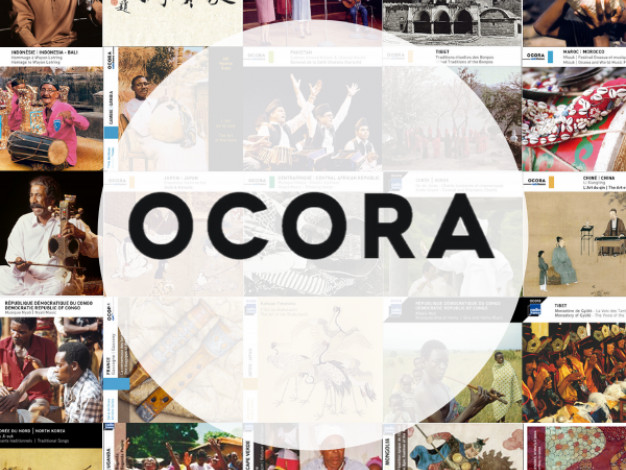Take a trip through Ocora, the world’s finest music collection, with Serge Noël-Ranaivo, the label’s coordinator.
Since 1957, the Ocora Radio France record collection has specialised in so-called ‘traditional’ music, the learned and popular music of world cultures. It synthesises the most authentic musical expressions collected in the field through live and studio recordings of musicians reviving ancient musical traditions. These include :
- Learned and sacred music from the Far East,
- The great masters of the Indian subcontinent and Central Asia,
- The oral traditions of sub-Saharan Africa,
- Music from the Arab world (Mediterranean and Middle Eastern) and the Americas (Latin and Amerindian),
- Traditional European music (from Finland to Spain, Bulgaria to France), which has received particular attention in recent years.
Access the entire collection on Cézame
Can you tell us how and under what circumstances the magnificent Ocora Radio France collection came into being?
Pierre Schaeffer (1910-1995) was a composer considered to be the father of musique concrète and electroacoustic music, but he was also a radio man. He set up various departments within what was to become Radio France, one of which led to the creation of the Ocora Radio France collection of traditional music.
It first appeared in 1957 in Africa, in the Dogon country, under the supervision of Radiodiffusion d’Outre-mer, which was to become, in 1959, the Office de Coopération Radiophonique, of which ‘OCORA’ is in fact the acronym – a public body for training radio technicians in the French colonies of West Africa that were gaining independence at the time.
The ORTF (Office de Radiodiffusion-Télévision Française), created in 1964, broke up in 1974 with the separation of television and radio activities – and the creation of Radio France, which continued the musical activities not of the ‘Ocora’ as a training organisation but of the ‘Ocora Radio France collection’ of records of traditional music from all over the world.
They favour a ‘direct’ approach to music (giving people the chance to listen to music as it is) as well as a heritage approach (in the sense that from the outset it was clearly established that all traditional music was equally worthy of interest – whether popular or classical, secular or sacred). Today, Ocora is probably the oldest label in the world still in uninterrupted activity for some 60 years, devoted to traditional music.
How many countries in the world have been explored in this way?
In the early years of Ocora, the discs were all based on field recordings of the music of West Africa and Madagascar. In the decades that followed, the catalogue was broadened to include Asia and the Middle East, in parallel with French academic research (archaeological, linguistic, historical and, of course, ethno-musicological) – while at the same time opening up to other sources of recordings: discs recorded in the Radio France studios or based on concert recordings.
Over the past 25 years, the period I have covered, there has been a conscious emphasis on European and South American music. To date, the Ocora Radio France collection features traditional music from 82 countries and/or musical cultures.
What are your favourites? Can you share with us an anecdote or a memory about a particular artist or album in the collection?
Of course, I have a wide musical pantheon (which happens to be quite evolving as we produce between 5 and 10 titles a year), but among the recent releases I would mention 2 titles that stand out for me:
The CD Sweden Norway – Norrspel (C 560260), which presents the string instrument traditions of Northern Europe through repertoire and creations, with sounds reminiscent of the Baroque or the Middle Ages (Ingmar Bergman’s film The Seventh Seal comes to mind);
The double CD Tibet – Monastery of Gyütö (C 561133-34) recorded in 1975 by monks from the first generation of Tibetan exiles in India, who had accompanied the Dalai Lama fleeing Chinese persecution. This is truly evocative music, whether or not you share the idea of transcendence.
Listen to and synchronise the album with Cézame..
Interview by Fabien Bermant – Cézame Music Agency
To find out more:
Read the interview given by Serge Noël-Ranaivo to Radio France..


